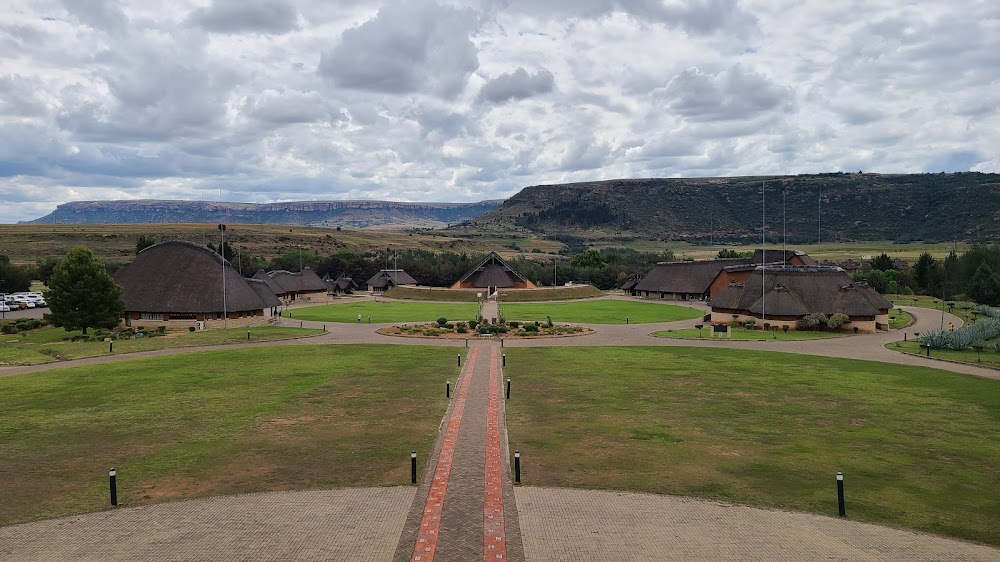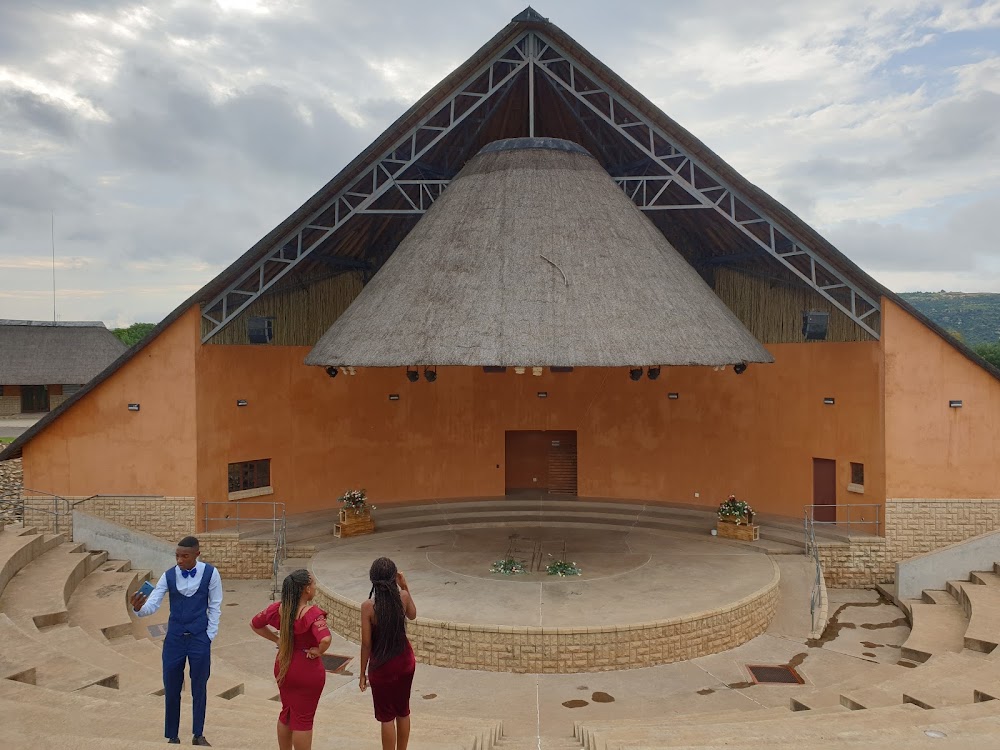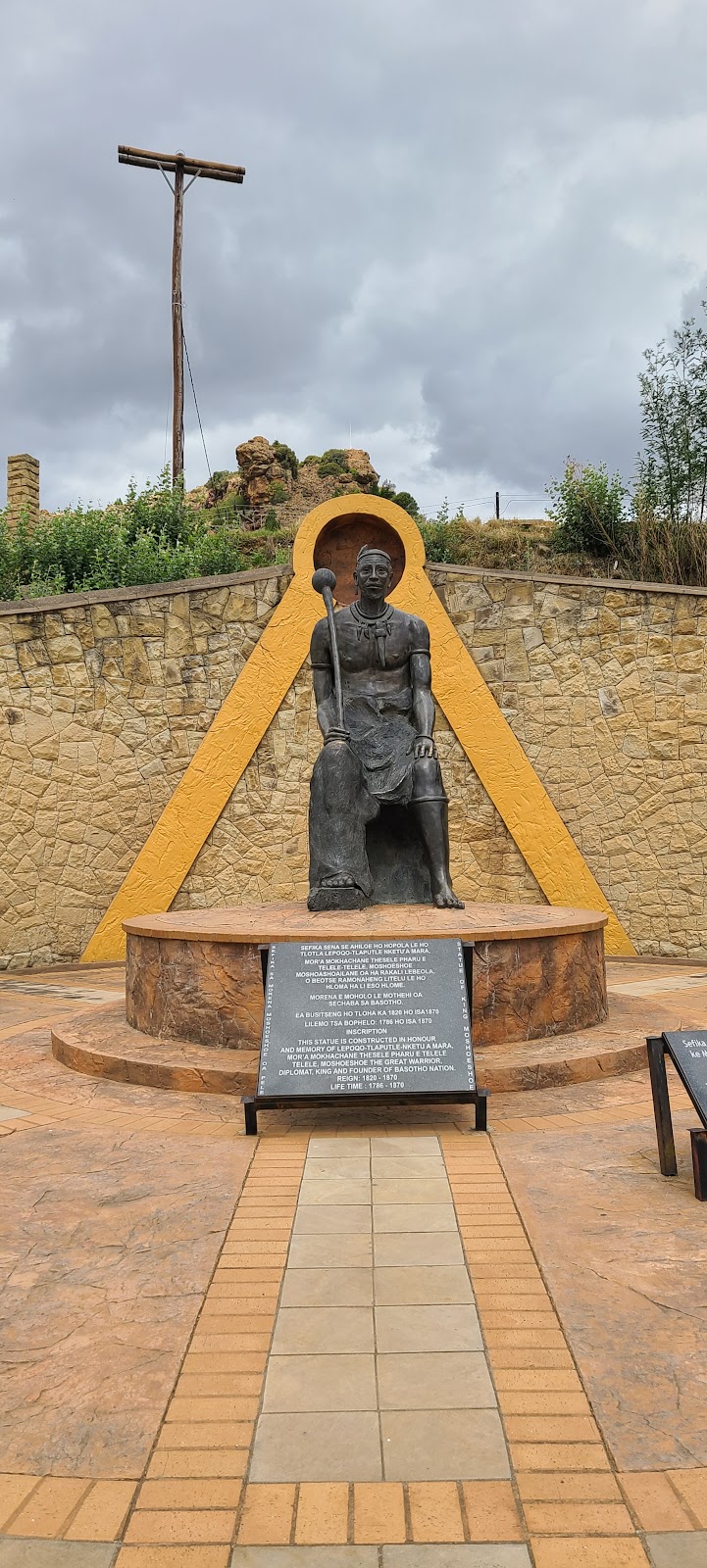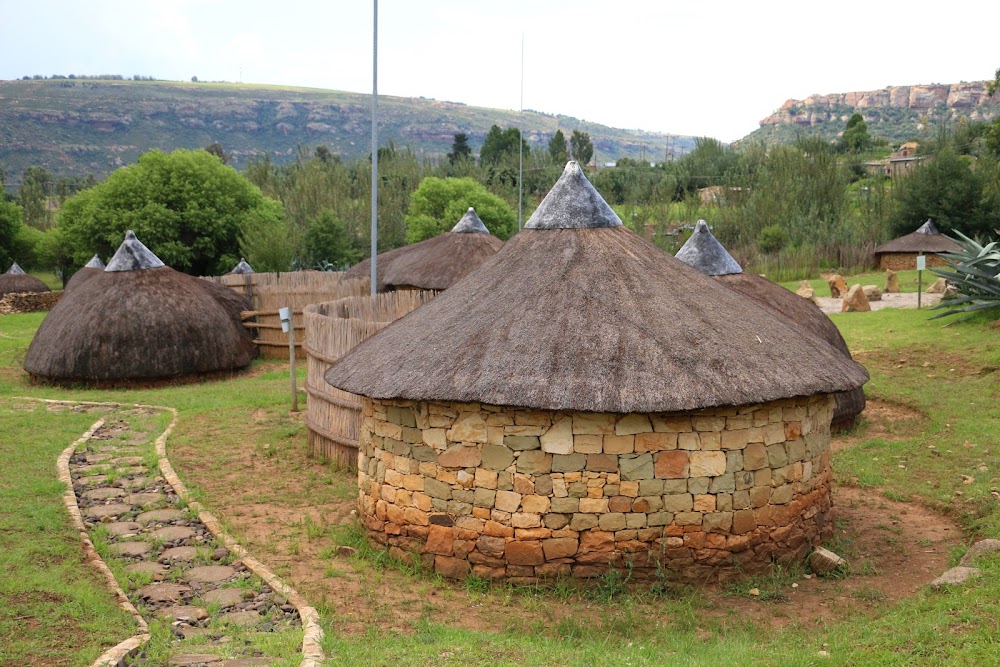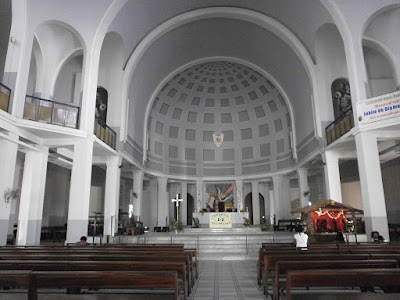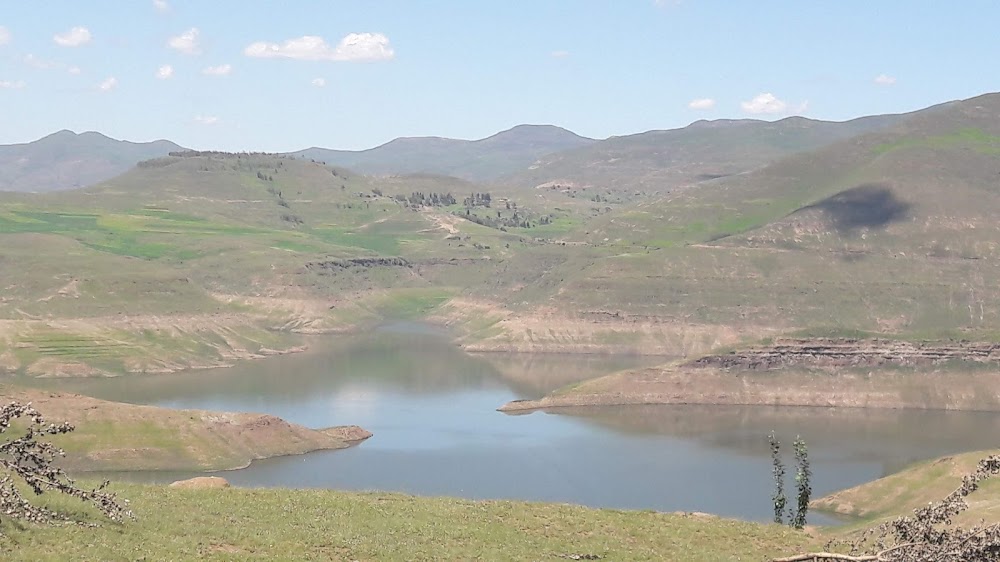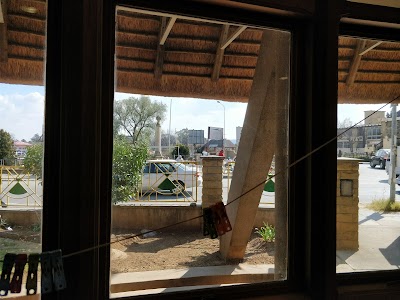Thaba Bosiu Cultural Village (Thaba Bosiu Cultural Village)
Overview
Nestled at the foot of Thaba Bosiu, just outside Maseru, Lesotho, Thaba Bosiu Cultural Village serves as a vibrant testament to the nation’s heritage and traditions. This remarkable site has been thoughtfully designed to encapsulate the rich history and culture of the Basotho people, offering visitors an immersive journey into the heart and soul of Lesotho.
Thaba Bosiu, which translates to "Mountain at Night," holds immense historical significance as it was once the fortress of King Moshoeshoe I, the founding father of the Basotho nation. Established in the early 19th century, this cultural village is a living museum that pays homage to the legacy of King Moshoeshoe I and the enduring spirit of his people.
The construction of Thaba Bosiu Cultural Village was a collaborative effort involving local artisans, historians, and architects who were dedicated to preserving authentic cultural representation. Traditional building methods and materials were employed to ensure that the structures resonate with historical accuracy. The traditional huts, known as "mokhoro," are crafted from mud, thatch, and stone, reflecting the enduring architectural style of the Basotho people.
As you wander through the village, you will encounter a variety of meticulously recreated buildings and exhibits. The traditional huts are adorned with handmade artifacts such as pottery, woven baskets, and textiles, each piece showcasing the fine craftsmanship that has been passed down through generations. These items serve not only as educational tools but also as a celebration of Basotho artistry.
One of the highlights of the village is the reconstructed royal kraal, where visitors can catch a glimpse of life during the reign of King Moshoeshoe I. The kraal features replicas of the king’s hut, council chambers, and other essential structures used for governance and daily activities. Engaging historical reenactments and guided tours bring to life the stories of old, offering a vivid portrayal of the king’s reign and the defense of his people.
Another captivating aspect of Thaba Bosiu Cultural Village is the traditional song and dance performances held regularly. Performers dressed in vibrant Basotho attire showcase traditional dances, songs, and music. Their energetic movements, coupled with the haunting melodies of the lesiba and other traditional instruments, encapsulate the spirit and vibrancy of Basotho cultural expressions.
In addition to cultural displays, the village offers workshops on traditional crafts and skills. Visitors have the chance to participate in pottery making, basket weaving, and traditional cooking classes, providing a hands-on experience of the Basotho way of life. These workshops foster a deeper appreciation for the techniques and knowledge that have been preserved through the ages.
Thaba Bosiu Cultural Village plays a crucial role in education and preservation. It serves not just as a tourist attraction but also as a center for cultural education for the local community. Schools frequently organize visits to the village, allowing students to connect with their heritage and learn about their history in a dynamic environment.
The creation of Thaba Bosiu Cultural Village is rooted in a vision to preserve and promote Basotho culture for future generations. It stands as a testament to the resilience of the Basotho people and their commitment to maintaining their rich cultural legacy. Through its authentic reconstruction and interactive displays, the village offers an invaluable window into the life and history of one of Southern Africa’s most storied nations.
Today, Thaba Bosiu Cultural Village is a cherished cultural landmark that attracts visitors from around the globe. It provides a comprehensive and engaging exploration of Lesotho’s history, ensuring that everyone who visits leaves with a deeper understanding and respect for Basotho culture.


